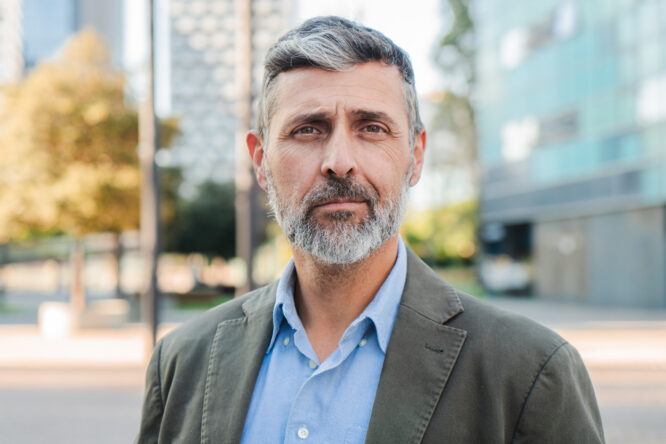It’s not always easy to recognise when you’ve reached breaking point and have defaulted to survival mode, weirdly enough.

After all, it’s not just panic attacks or crying on the bathroom floor. Sometimes, it’s in the subtle ways you learn to just get through life—numb, disconnected, and always one step ahead of burnout without ever quite crashing. Here are some signs you’ve been living in a space of just trying to get by for longer than you realise, and why it might be time to start healing instead of just coping.
1. You’re constantly tired, even when you get plenty of sleep.

You go to bed exhausted and wake up just as drained. No amount of rest ever seems to actually restore you. That’s not just physical tiredness, it’s emotional depletion. When your nervous system never gets a real break, everything starts to feel heavy. This kind of fatigue isn’t fixed with a weekend off. It needs emotional rest—the kind that comes from feeling safe, not just sleeping in.
2. You struggle to feel happiness, even during good moments.

Good things happen. You smile. You laugh. Still, something feels flat underneath, like you’re going through the motions instead of really experiencing it. Joy doesn’t stick—it slides right off, like you can’t absorb it properly. Unsurprisingly, emotional numbness is often a side effect of survival mode. Your system is so focused on staying “okay” that it shuts out everything else—including the good stuff.
3. You’re always waiting for something to go wrong.

Even when life is calm, there’s a quiet part of you bracing for impact. You can’t fully relax. You don’t trust stability. Something in you expects it to fall apart, and that expectation keeps you on edge, even when everything looks fine from the outside. That hypervigilance becomes a lifestyle, and it’s exhausting to live in a world where peace feels temporary and danger always feels just around the corner.
4. You don’t know how to answer “How are you?” honestly.

You default to “I’m fine” because it’s easier than explaining what’s actually going on. The real answer feels too complex, too foggy, or maybe even too empty. You’ve been surviving for so long that you’ve forgotten how to check in with yourself properly. When you’re always in motion, self-awareness takes a back seat. After a while, you stop even knowing what you feel—just what you need to do next.
5. You find it hard to ask for help, even when you’re overwhelmed.

Survival mode often comes with self-sufficiency. You don’t trust that anyone will show up, so you stop reaching out altogether. It feels safer to cope alone than risk feeling let down or misunderstood. This habit usually started as protection, but in adulthood, it leaves you isolated, overburdened, and even a bit resentful—with no one around who even knows you’re drowning.
6. You feel emotionally flat more often than not.

You’re not necessarily sad or miserable. You just feel… blank. Detached. You’re going through the day, ticking boxes, nodding in conversations, but everything feels low-volume. Like your emotions are stuck on mute. That flatness is a coping mechanism. When you’ve been overwhelmed for too long, your brain starts buffering the emotional intensity just so you can function.
7. You can’t remember the last time you felt safe to slow down.

Slowing down makes you anxious. Stillness feels unfamiliar, even threatening. When you’ve built your life around staying busy, productive, or useful, the idea of rest triggers discomfort, not relief. This is often because your nervous system doesn’t associate stillness with safety. It associates it with vulnerability, and that’s something that takes time to rewire.
8. You overreact to small things, and feel guilty later.

The dropped glass, the traffic jam, the forgotten email—they all hit harder than they should. You feel rage, panic, or tears at full force, then feel embarrassed or confused about your reaction. That’s what happens when your emotional system is already overloaded. Small stressors become the final straw because your capacity has been running on fumes for years.
9. You stay in survival mode even when the crisis is over.

Maybe the breakup happened years ago. Maybe the difficult job ended. Maybe your life looks calm now. But inside, you’re still operating like the threat is active. The alarm never got switched off. This is a big sign that survival mode isn’t just circumstantial—it’s become internalised. Your body still thinks it’s protecting you, even when you’re no longer in danger.
10. You live by lists, but rarely feel accomplished.

To-do lists, routines, tasks—you stay organised because it helps you feel in control. However, no matter how many things you tick off, there’s always more. You rarely feel satisfied, just temporarily less anxious. This kind of constant planning often masks deeper emotional overwhelm. When life feels chaotic inside, you control the outside just to feel grounded.
11. You struggle to feel emotionally close to other people.

It’s not that you don’t love people. But connection feels hard. Vulnerability feels unnatural. You keep things surface-level, or you disconnect mid-conversation without meaning to. You might even pull away when things start to feel too real. That distance isn’t because you don’t care. It’s because your system has been wired for survival, not closeness. And closeness takes energy you haven’t had in a long time.
12. You constantly feel behind, even when you’re doing fine.

No matter how much you achieve or keep up with, there’s always this background feeling that you’re not doing enough. You compare yourself to other people. You chase milestones, but the finish line keeps moving. That internal pressure usually comes from a deeper belief that your worth is tied to output. Survival mode keeps you running long after the reason you started has disappeared.
13. You’ve forgotten what peace actually feels like.

Peace doesn’t feel familiar. It feels suspicious. Like something must be wrong if nothing is wrong. You’ve learned to associate calm with the moment before a storm, not with actual rest or contentment. If you struggle to feel safe in the absence of chaos, it’s not because you’re broken. It’s because survival mode taught you that chaos was normal. Unlearning that is hard, but possible.




